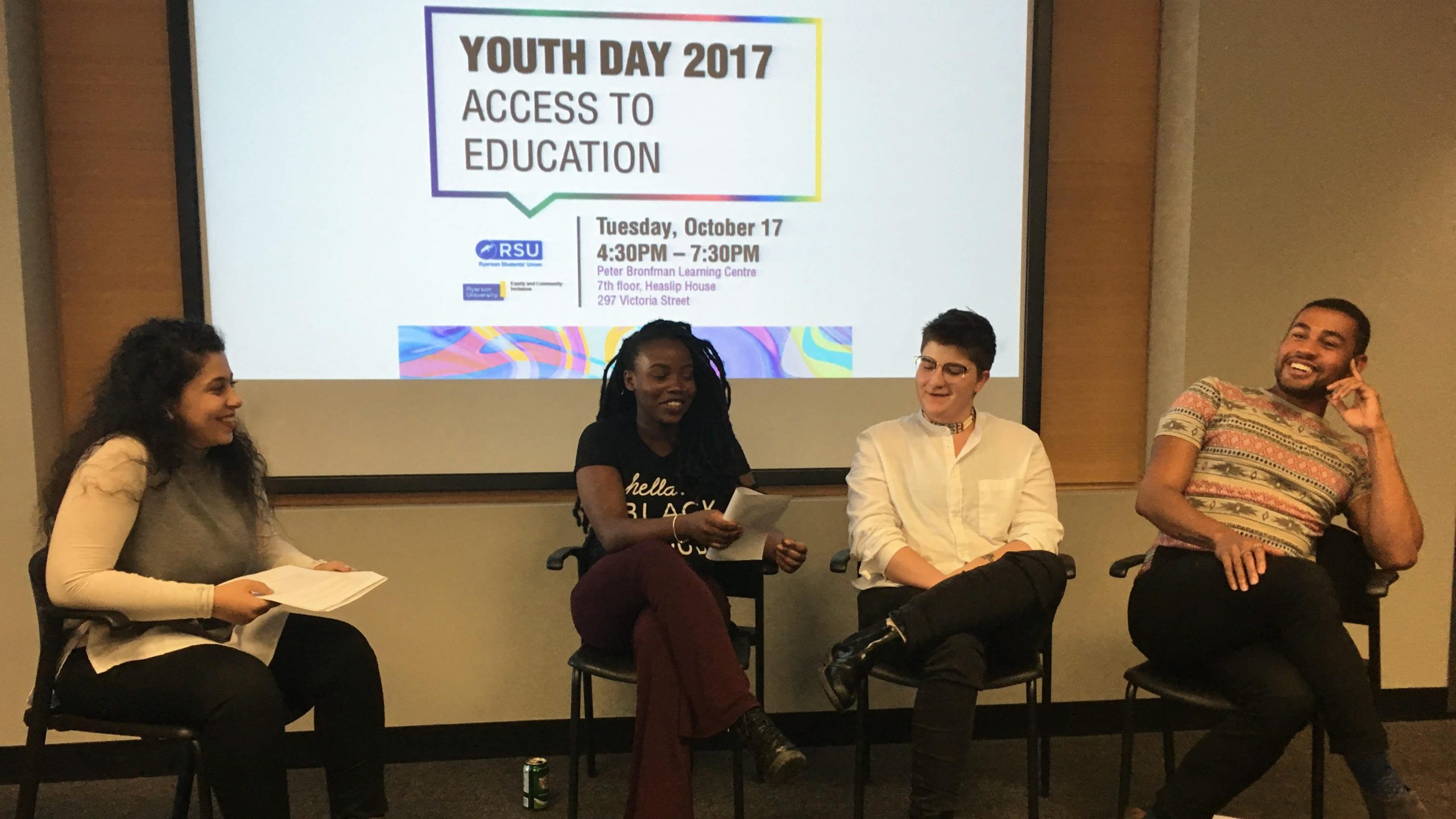By Mira Miller
A diverse panel of Ryerson students addressed the issues and oppression young people from marginalized groups face in their attempt to access and excel in post-secondary education.
The Youth Day 2017 Access to Education event took place yesterday and was organized by the Ryerson Students’ Union (RSU) and Ryerson’s Equity, Diversity and Inclusion (EDI) Office. It was in celebration and recognition of International Youth Day.
Camryn Harlick, RSU vice-president equity and third-year criminology student, spoke about the barriers they experience in the classroom at Ryerson.
“In my [almost] three years here, I have not gone through one class without experiencing transphobia or anti-Indigenous racism,” Harlick said.
They said that in order to make Ryerson more accessible for all students, professors should have mandatory, in-depth equity training. “It’s not just about looking equitable, it’s about what are we doing to listen to students to make sure that equity is following through.”
Panelist and RSU president Susanne Nyaga, said Ryerson desperately needs to improve how it accommodates students from marginalized communities because the system simply was not built for them.
“Accommodation to me just means somebody says this is their need and you’re able to work around that need and make the space successful for them,” she said. “We should be building a campus where students don’t always have to go up to a prof and say ‘This is my life story. This is my trauma. Are you able to accommodate that?’”
Before coming to university, the panelists explained that their paths had many obstacles. They spoke about their personal struggles with tackling barriers to accessing post-secondary education.
Harlick said their biggest obstacle was homelessness and being a crown ward. They explained that they were moved around a lot which meant constantly switching high schools and therefore made it difficult to keep up with course work.
“It was very rare that I would be living in one place for more than two months at a time,” Harlick said.
They also explained that abuse was rampant in foster homes and there were times when homelessness was the only solution to escape that abuse.
Josh Lamers, a fourth-year social work student and one of the co-founders of the Black Liberation Collective at Ryerson, said his biggest barrier was an unsuccessful trans-racial adoption and the anti-Blackness and homophobia he experienced growing up in a mostly white town.
“For me university was the ticket out of that town, but the path to that ticket was not easy.”
Nyaga said that as a Black woman, the biggest barrier she faced in accessing education was the way her high school teachers attempted to stream her into a specific field because of her identity.
“Being a Black female in the classroom, often I was pushed towards social sciences. I was pushed toward humanitarian work and less sciences and math,” she said.
Nyaga added that racialized women are often overrepresented in social service fields and underrepresented in fields that earn the most capital.
Carol Sutherland, one of the organizers of the event and a faculty member of the EDI office, said in an interview that the event was “a good opportunity to have the conversation with Ryerson students … and to make everybody feel included.”
At the end of the day, Lamers said accommodation means that every student can be comfortable and happy on campus.
It means that “whatever the hell goes on in my life out there, which often intersects with this one, when I come to [my life on campus] I can be happy and love myself and love the space that I’m in.”













Leave a Reply